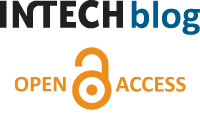Michael Nielsen gave a talk at the TEDxWaterloo event and he discussed what is the most popular debate lately about scientist giving away their data freely. Much like Stevan Harnad in his video participation at the BRDI conference in December, last year, he points out the failure of most wiki and blogging projects that requested scientists to give away their long gathered data and make it openly available. The valid result for scientists is still a scientific paper (which is an analysis rather than a set of data) and they are much reluctant to upload their gathered material.
Nielsen tells the story of the Polymath project, and describes it as a successful example of open collaboration between scientists in the field of mathematics. However, since the result of the Polymath blog is – a scientific paper – those methods still rely on conservative values.
Nielsen poses fundamental question for society today: Will we continue to do research as we did in past or will we embrace new kinds of sharing which leads to new methods and acceleration of research? Will we continue to push the car or finally, drive it?
Nielsen invites scientist to help in reinventing the discovery itself. The general awareness of open collaboration must be raised, he explains, and everyone must participate, including universities and government.
How will this happen? Scientist should:
- get involved in open science projects
- start their own open science projects
- find forums which discuss certain scientific topic
Nielsen reminds of the example of Galileo who scrambled his findings in an anagram and then sent it around for other scientist to find about this discovery and when they have built upon it, to still credit him for this breakthrough.
The culture of science has changed before, Nielsen claims, so why wouldn’t it change again? He is, however, aware, that to change values of individual scientists is a difficult thing to do. Scientists hoard their data, their ideas, their code. They will even sit on a new species for a month before they show it, as Nielsen puts it. To put it in Harnad‘s words: “scientists need a long enough exclusive time to data-mine the data; otherwise there is no incentive to gather it.” So much data is still locked up while the new technology enables us to share knowledge. This is where Nielsen calls for the inevitable Second Open Science Revolution. What will make it grow? New reward system, new education, new tools, new projects? The list continues…











Pingback: L’opendata dans tous ses états – Avril I «
Pingback: Why will open science become the main kind of science? - Quora